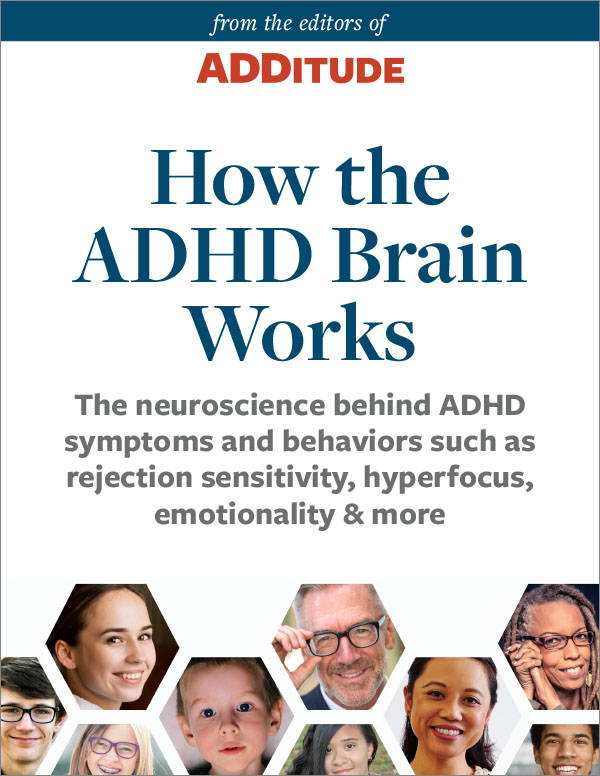Q: “Is It Anxiety? Nervousness? Worry? What’s the Difference?”
Anxiety, nervousness, and worry are all signs of ADHD emotional dysregulation, but they are not the same. Learn how to tell them apart, and how symptoms of ADHD complicate and influence presentations.
Q: “What’s the difference between anxiety, nervousness, and worry? Aren’t they all related? Does my ADHD have anything to do with my emotional responses?”
Nervousness, worry, and anxiety are closely related concepts. Though the terms are often used interchangeably, they each have different meanings and manifestations.
- Nervousness typically occurs when there is uncertainty around an unfamiliar situation. It diminishes once a new skill is learned.
- Worry refers to the expectation of a negative outcome.
- Anxiety is a condition of over-responding to a fear or worry.
[Get This Free Download: Understanding Social Anxiety Disorder]
Worry Vs. Anxiety
Worry is related to how we think about something and, despite what you may believe, there are some good things about being a worrier. Worriers (I’m one of them) have great imaginations. We have terrific future-focused thinking and creative ways of seeing things, all of which makes us good planners.
There are two types of worry: productive and poisonous. Productive worry focuses on things within our control – like homework, getting to work on time, remembering to charge your phone, etc. – and it is often helpful. On the flip side, poisonous worry centers around things outside of our control – like thunderstorms, plane crashes, or whether people will like us – and it’s typically unhelpful.
There are several diagnoses under the wide umbrella of anxiety – from separation to general to social anxiety, various phobias, obsessive-compulsive disorder and post-traumatic stress disorder (PTSD). Here, we’re concentrating on general anxiety, although much of what we discuss is applicable to other conditions.
With most types of anxiety, there’s a tendency to interpret predictions as facts and exaggerate uncertainties. Fear or worry may abound in absence of a genuine threat. Or, when there is a real threat, there’s a disproportionate reaction to it. Anxiety, therefore, increases overwhelm and is associated with catastrophizing. Anxiety, comprised of worry and nervousness, affects memory, executive functioning skills and self-esteem.
[Read: My Paralyzing Anxiety Tells Me I’m Not Good Enough]
Anxiety and ADHD
Many people with ADHD suffer from anxiety. This is due, in part, to the ADHD brain’s difficulty with emotional regulation and with filtering internal and external stimuli (the triggers behind anxiety). This combination often leads to ‘flooding’ – intense emotional overwhelm that is difficult to manage and recover from. What’s more, executive functioning challenges inherent to ADHD may limit the acquisition and implementation of coping strategies, exacerbating stress and emotional dysregulation.
Anxiety vs. Nervous vs. Worry: Next Steps
- Free Download: 9 Truths About ADHD and Intense Emotions
- Read: I Can’t Handle Rejection. Will I Ever Change?
- Read: Is ADHD or Anxiety to Blame for My Perfectionism?
The content for this article was derived, in part, from the ADDitude ADHD Experts webinar titled, “Start with ‘Hello’: How to Reduce Social Anxiety and Foster Connections” [Video Replay and Podcast #395] with Sharon Saline, Psy.D., which was broadcast on April 6, 2022.
SUPPORT ADDITUDE
Thank you for reading ADDitude. To support our mission of providing ADHD education and support, please consider subscribing. Your readership and support help make our content and outreach possible. Thank you.






